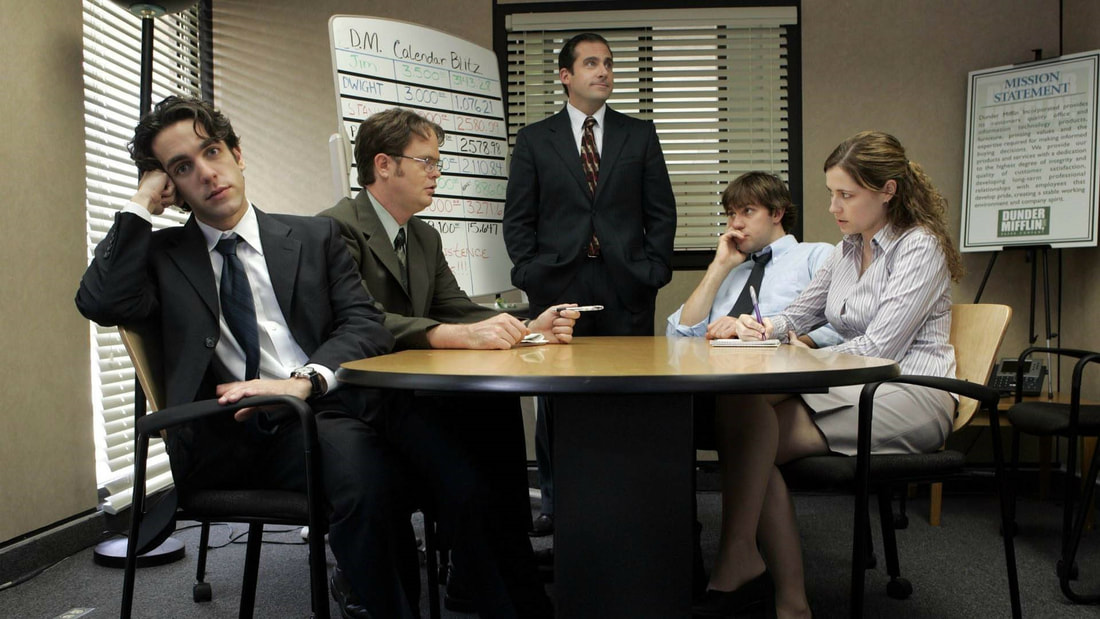Besides this staggering figure, concerns over work meetings and how they can hinder employee productivity and their day-to-day experience of the workplace have been raised.
The Workplace Distraction Report carried out by Udemy in 2018 flagged late arrivals, small talk, conversational tangents and connectivity issues as reasons why meetings are derailed.
A lack of a clear agenda compounds the problem and often leaves employees feeling that their time has been wasted.
Collaboration is key to team building and enhances workplace dynamic, but we are not beholden to the traditional meeting. By revising our approach to meetings, we can reinfuse our meetings with organic ideation and keep each other ‘dialled-in’.
Are your company’s leaders ready to reinvent the meeting?
How to Run a Meeting
o Make the Agenda of the Meeting Crystal Clear
Designate a tangible objective you would like to achieve during the meeting. A clear subject line in the e-mail invite allows your colleagues to think about the topic of discussion beforehand and ready any necessary paperwork they may need.
It also allows colleagues to decide whether they are involved enough in the objective to attend.
In David Grady’s TED Talk ‘How to save the world (or at least yourself) from bad meetings’, he quips that employees collectively suffer from ‘Mindless Accept Syndrome’ and think of a meeting invite as obligatory rather than a choice.
Your HR department should remind employees that they can respond with a ‘maybe’ to a meeting or even decline.
This fresh awareness that it’s their choice will filter out those who have more pressing tasks and curate the list of attendees to those with the most to give to the project under discussion.
o Keep it Short and Sweet
A meeting should ideally last for no longer than 30 minutes.
If you have clarified the agenda, all attendees should know whether the goal of the meeting is either to solve a problem or create a new opportunity; a distinction which will reduce irrelevant contributions which are more likely to crop up if the goal is nebulous.
Assigning everyone a specific part to play ahead of time will urge participants to speak up at discussion points which are relevant to their role.
Setting a time limit on the meeting will advance the agenda and make an actionable outcome more likely.
o Request Feedback and Create an Action Plan
A great way to conclude a meeting is to open the discussion to critique from attendees.
This is a great time to get feedback on your meeting procedure and give participants the opportunity to communicate any unsaid points or suggestions on how to rethink meeting procedure.
Rather than drawing up the minutes of the meeting, list the decisions made and the individuals who helped you to make them.
This will not only create a clear action plan going forward but will also show appreciation for active participants.
When to Leave it to Tech
A common complaint about meetings is that it could have been an e-mail – we’ve all been there.
If the topic of your meeting is just an update on project proceedings, a request for feedback or you need some answers, it can probably be done through e-mail.
The crux of a meeting should be team collaboration to think of something new or find a creative way to cut back on costs, it should be a process of puzzling out a new approach to something.
Time to Make Meetings Matter
Your HR team has the potential to transform your business approach to meetings – get your leaders on side, and this will be possible.
By designating a clear agenda for meetings, limiting their length and assigning attendees tasks, you can build momentum in your meetings and avoid time-wasting.
Reminding employees that they can choose to decline the meeting invite if they have more relevant tasks will lessen the pressure on staff and improve employee experience.
Those who sacrifice their time to attend will be those closest to the project, a group who will be more likely to maintain interest, generate organic ideas and energise each other.


 RSS Feed
RSS Feed